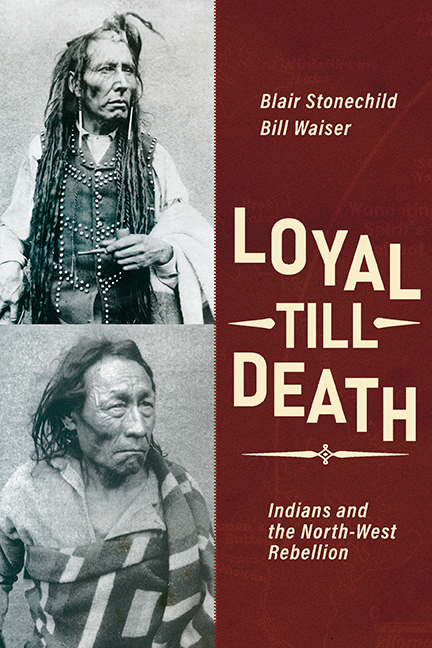This startling retelling of the North-West Rebellion explodes the myth of a grand Indian-Metis alliance and delves into the reasons why Indians have been branded as traitors and rebels in both the pub
This startling retelling of the North-West Rebellion explodes the myth of a grand Indian-Metis alliance and delves into the reasons why Indians have been branded as traitors and rebels in both the public imagination and official records.
After the rebellion, twenty-eight reserves were officially identified as disloyal, and more than fifty Indians - including Poundmaker and Big Bear - were convicted of rebellion-related crimes. The most damning event was the mass execution of eight Indian warriors at Fort Battleford in November 1885.
But Indian elders have long told stories about how First Nations remained faithful to their treaty promises during the conflict. Having their own peaceful strategies for dealing with an insensitive federal government, they were not interested in Riel's activities, and any Indian involvement was isolated, sporadic, and minimal. But Ottawa deliberately portrayed the Indians as outlaws to justify increasingly restrictive and repressive measures, an injustice that has left a lasting legacy with First Nations people.
Loyal till Death is the first comprehensive look at the Indian version of the North-West Rebellion. It brings to life many personalities - particularly those of the Indian leaders, whose voices have seldom been heard in conventional histories of the Canadian West. Combining oral history and exhaustive research, and illustrated with more than one hundred archival photographs, the book sheds new light on a greatly misunderstood aspect of our past.
Blair Stonechild, a member of the Muscowpetung band in southern Saskatchewan, was born in Fort Qu'Appelle and raised in Lebret and Regina. He earned his B.A. at McGill University in Montreal, and an M.A. at the University of Regina.
He has worked as an Indian land claims researcher for the Federation of Saskatchewan Indian Nations, and was the first instructor hired at the Saskatchewan Indian Federated College at the University of Regina in 1976. He went on to become head of the Department of Indian Studies and later dean of the college. He is currently executive director of planning and development at SIFC.
Blair and his wife, Sylvia, and their three children live in Regina.
Bill Waiser earned a B.A. in history from Trent University, and obtained his M.A. and Ph.D. from the University of Saskatchewan. He worked as Yukon historian for the Canadian Parks Service before accepting a teaching position at the U. of S. in 1984. A full professor since 1990, he specializes in western and northern Canadian history and is currently head of the Department of History.
Bill is the author of several books, including The New Northwest: The Photographs of the Frank Crean Expeditions, 1908-1909 and Saskatchewan's Playground: A History of Prince Albert National Park, which won a Canadian Parks Partnership National Award of Excellence and was recognized by the Canadian Historical Association as a "high quality book which makes a significant contribution to western Canada." He is also the author of the highly acclaimed Park Prisoners: The Untold Story of Western Canada's National Parks, 1915-1946.
Bill lives in Saskatoon with his wife, Marley, and their three children.
View Biographical note
Nominee, Governor General's Literary Award for Non-Fiction
View Promotional headline

